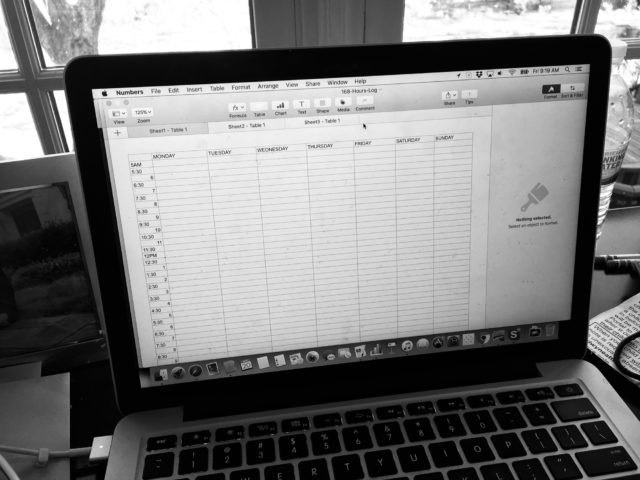When you think of the job of CEO of a public company, the assumption is that it is all-consuming. Perhaps most people don’t log 100-hour workweeks and sleep 4 hours per night, but CEOs certainly must…right?
Several alert readers have already sent me a new Harvard Business Review article on this very topic. A team of researchers recently completed a time diary study looking at how a handful of CEOs (25 men and 2 women) spent their time. They trained these leaders’ executive assistants to log how they spent their time, and they looked at the results over about 3 months.
The results show that CEO jobs are intense, but not completely crazy. On average, the CEOs worked 9.7 hours on weekdays, and 3.9 hours on weekend days, using the way I usually calculate work hours on time logs (coming out to a 56.3 hour week). The researchers also looked at work transit time — both commutes, and between offices/stores/plants/etc. — and put this at a 62.5 hour workweek, though this number does not seem to include weekend work. In any case, it’s not 100 hours. It could be, since no doubt CEOs receive enough email to fill an entire 168-hour week, but people chose to limit it.
One reason to limit it? To make sure they got enough sleep. The CEOs in the study got a reasonable amount of shut-eye. Less than the average person, for sure, but the time log total was 6.9 hours/day, or 48.3 hours/week.
If you work somewhere around 60 hours and sleep somewhere around 48, this leaves around 60 hours per week for other things. The researchers noted that many were exercising (about 45 minutes per day!) and they spent about half their non-work time with family. They logged about 2.1 hours of leisure per day: TV, reading, hobbies, etc.
The work time was spent — you guessed it — mostly in meetings, which makes sense. When you’re managing a large organization, you need to talk to people about how it’s going and how you’d like it to go. One funny fact: the CEOs were surprised to learn they were spending only 3 percent of their time with customers, which is less time than they spent with consultants. Hmm….
Meetings tended to get scheduled for set lengths of time, which the researchers noted was an easy opportunity for efficiencies. Rather than having a set length of 1 hour, choose a default of 30 minutes, or even 15. If people can demonstrate why they need more, they get more. But not automatically.
Many of the CEOs also spoke about how to keep email from being a gigantic time suck. Anyone in a leadership role has no doubt noticed that people cc you on all sorts of FYI stuff. This only gets worse as you rise up the ranks. The CEOs who’d really thought about this used their executive assistants to get as much of this triaged as possible.
Anyway, it’s an interesting look at how people spend their time — even in very intense roles. No doubt the CEOs could work around the clock, but they didn’t, because using your 60 off-hours well means you can spend your 60 on-hours well too.

